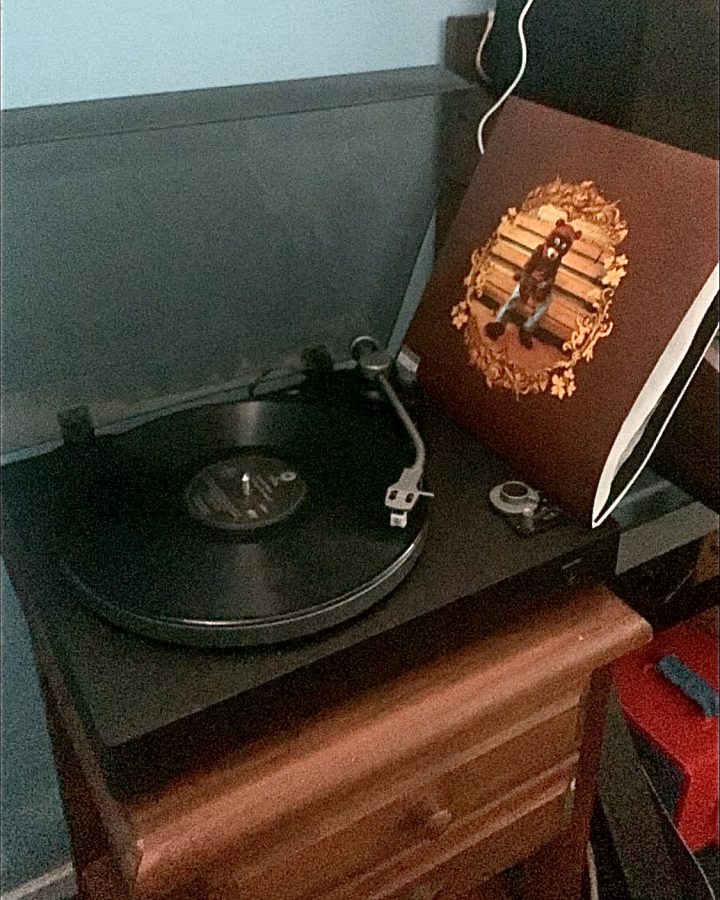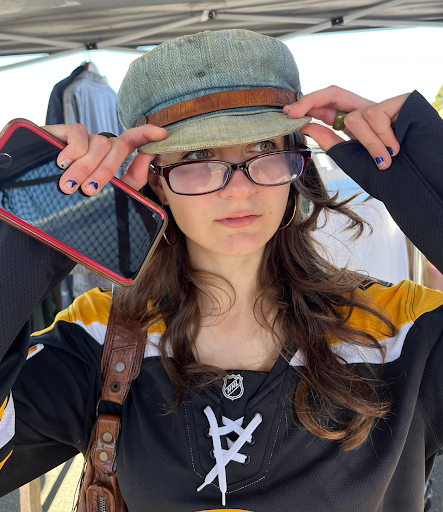Separating Art from the Artist
Art does not exemplify one’s whole character; it is more akin to a snapshot.
Is it possible to enjoy an artist’s work even after they did something that negatively affected their social standing? Currently, an increasing number of artists have been receiving scrutiny from the general public for controversial actions. Many have stopped supporting these artists because of such immoral behavior. Due to the artist’s negative reputation, their work is perceived in a worse manner by prior supporters and alienated from the general public. However, some think that tarnished reputations should not be considered when perceiving art, arguing that it can be separated from the creator. These two contrasting opinions often clash, with each side claiming that their opinion gives them the moral high ground. I believe that these artists are well-deserving of criticism, but their creations can still be enjoyed despite their behavior and beliefs.
In discussions I have had about whether an artist’s music should be boycotted, I usually hear that art is a direct extension of someone and completely reflective of their whole character. They believe that since the creator does or believes something that is harmful to others, their work promotes those behaviors or beliefs. While this opinion holds some validity, art does not exemplify one’s whole character; it is more akin to a snapshot, such as an experience the artist wanted to share or the emotions they wanted to convey. In most cases, the content that appears in their art has little correlation with a highly controversial action or belief. In my experience, the art that I usually create is not based on my entire character. I mostly make it as a cathartic release or something to show off a personal experience. The intention in creating the art is more important than the character behind it.
Admittedly, I have been inspired by a now controversial artist–Kanye West–whose music has helped me persevere through challenges in my life. Hearing about his treacherous journey into the music industry through his songs gave me hope of accomplishing a goal whenever I was faced with a setback. When faced with some seemingly insurmountable obstacle, reminding myself of his perseverance has pushed me to go on. Recently, he has made a number of antisemitic statements, which has led to condemnation in the news and on social media. I do not in any way support these opinions, but I must admit that his music played a role in helping me through difficult times in my life, especially with many of the health problems I have dealt with.
Whenever West’s music is brought up in conversation today, most people mention his antisemitic views. This would be fair if all artists who carried controversial views were treated this same way. However, treatment among unsavory artists is inconsistent; some people’s art is scrutinized to the same degree as West’s while others’ art is free from criticism. This creates a double standard between artists, which treats some artists more leniently than others. One notable example of this would be Pablo Picasso, who is widely regarded as one of the best artists of his generation. What not many people know about him is that he also held misogynistic views. However, his views are rarely mentioned in the same conversations as his art. This sentiment is continued today with J.K Rowling, the author of the Harry Potter series who has recently been criticized for her transphobic views. However, the reputation of the Harry Potter series has not been tarnished by this. People choose to ignore their views because of their contributions to modern art. One possible solution to this would be to review the creators of the most impactful art pieces throughout history, which would be a lot of work and possibly alienate the classics from consumers. Ultimately, the best course of action would be to consume art without holding the artist against it.
When I asked the SHC community their opinions on the issue, many students shared a similar sentiment. However, their rationales for why had great variety. Freshman Miles Ajoste ‘26 asserts, “Since the art usually doesn’t promote their bad beliefs, I think you can enjoy it and not like the creator.” Upperclassmen held the same opinion, with senior Miguel Hernandez ‘23 claiming “You should think about what the art makes you feel and not what the artist makes you feel.” A junior, Grace O’Connell ‘24 argues that “people enjoy art because of the sound or technique, not usually because of the artist.” For the most part, the SHC community agrees that art can be enjoyed regardless of its creator. This attitude is not consistent with the whole school, as junior Elijiah Langlois ‘24 argues that “listening to his [Kanye’s] music would get him paid, and we shouldn’t pay people that hold these types of views.” Although artists do make money from consumers, many people fail to consider that the artists are not the only people that get a profit, there are some people who work at streaming services or producing companies that also depend on art consumption as their means of revenue.
Even though I believe that artists need to be held accountable for their immoral behavior, connecting artists to their art forces consumers into an ethical dilemma, deciding whether to stop enjoying something or to support someone that spreads negativity. In the event that one may continue to support someone regardless of their actions, the supporter could be put in a state of cognitive dissonance, in which they may possibly be swayed to shift their beliefs in order to enjoy art. The concept of separating art from the artist would alleviate the consumer of this dilemma, and eliminate the double standard for these controversial artists.

Matthew is a first year writer and a junior at SHC. He is part of photography club and likes to lift weights and collect vinyl records outside of...









